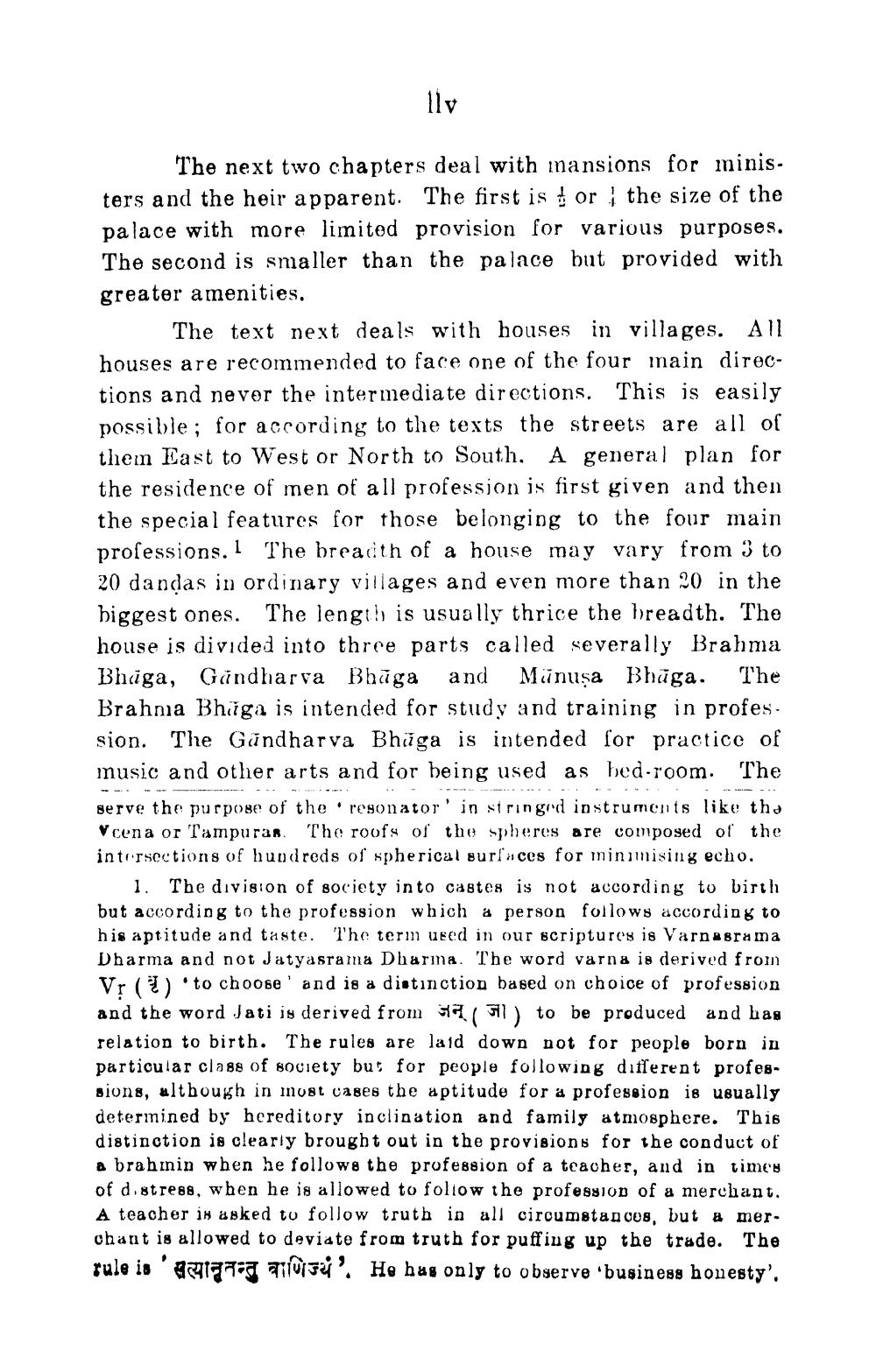________________
Ilv
The next two chapters deal with inansions for ministers and the heir apparent. The first is ļor the size of the palace with more limited provision for various purposes. The second is smaller than the palace but provided with greater amenities.
The text next deals with houses in villages. All houses are recommended to face one of the four main directions and never the intermediate directions. This is easily possible; for according to the texts the streets are all of thein East to West or North to South. A general plan for the residence of men of all profession is first given and then the special features for those belonging to the four main professions. 1 The breadth of a house may vary from 3 to 20 dandas in ordinary villages and even more than 20 in the higgest ones. The length is usually thrice the breadth. The house is divided into three parts called severally Brahma Bhiga, Gandharva Bhūga and Münuşa Bhāga. The Brahna Bhiiga is intended for study and training in profession. The Gandharva Bhäga is intended for practice of music and other arts and for being used as bed-room. The serve the purpose of the resonator' in stringed instruments like the Vcena or Tampuras. The roofs of the spheres are composed of the intersections of hundreds of spherical surfaces for minimising echo.
1. The division of society into castes is not according to birth but according to the profession which a person follows according to his aptitude and taste. The term used in our scriptures is Varnasrama Dharma and not Jatyasrama Dharma. The word varna is derived from Vr () 'to choose' and is a distinction based on choice of profession and the word Jati is derived from 518911 ) to be produced and has relation to birth. The rules are laid down not for people born in particular class of society but for people following different professions, although in most cases the aptitude for a profession is usually determined by hereditory inclination and family atmosphere. This distinction is clearly brought out in the provisions for the conduct of a brahinin when he follows the profession of a teacher, and in times of distress, when he is allowed to follow the profession of a merchant. A teacher is asked to follow truth in all circumstances, but a mer. chant is allowed to deviate from truth for puffing up the trade. The rule is '&g15757 atùsü'. He has only to observe business honesty'.




